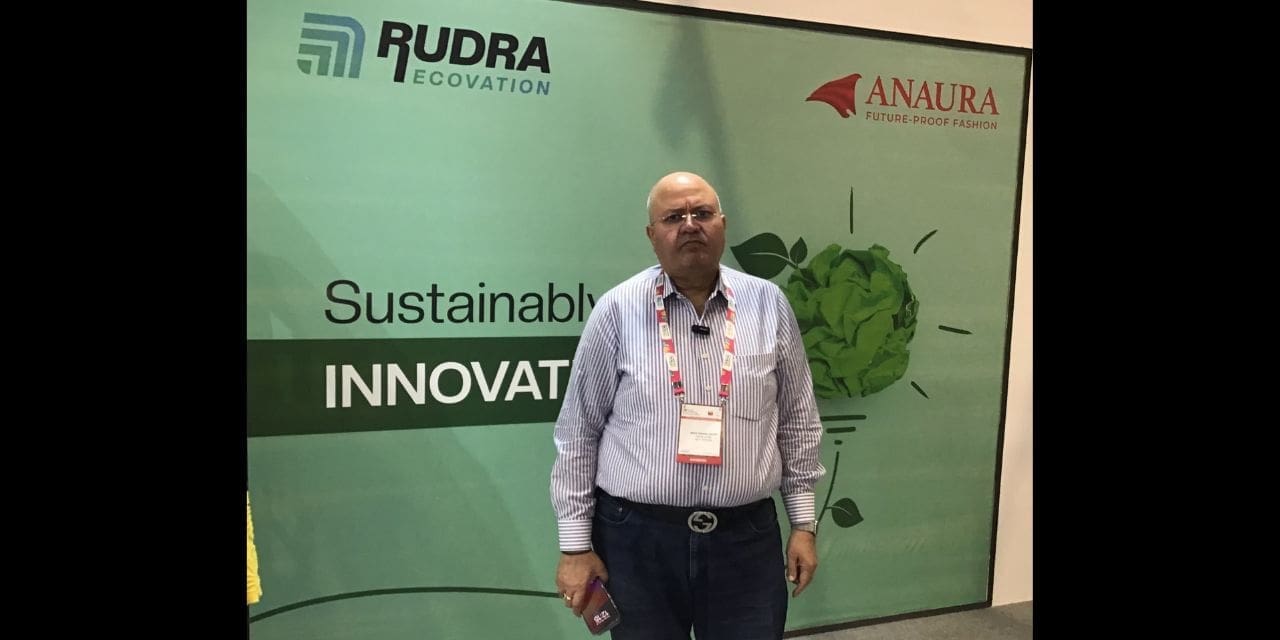Rudra Ecovation, situated on 100 acres of Ludhiana’s land, serves as a symbol of environmental awareness. The organisation is renowned for its impactful initiatives, particularly its daily conversion of 88 lakh plastic bottles into premium yarns and fibres, showcasing a dedication to sustainability and innovative waste management. Rudra Ecovation envisions a future where the textile industry leads in eco-friendly practices and sustainable solutions.
Rooted in a history of creativity and environmental consciousness, their ambition transcends the mere conversion of plastic bottles into advanced products. They strive to set a global benchmark for green initiatives, driving developments that redefine textile manufacturing while fostering a balanced relationship between industrial progress and environmental stewardship. By pursuing this goal, Rudra Ecovation aims to ignite a movement towards sustainable change across industries, contributing to a greener planet and a sustainable tomorrow.
TVC Media Team engaged in a discussion with Mr. Akhil Malhodra, CMD of Rudra Ecovation Ltd, during the Bharat Tex 2024 event.
Please tell us about Rudra Ecovation & the product, company objective and vision for the company.
Our company is located in Ludhiana, just 40 km away at Machhiwara, where we specialise in manufacturing sustainable products. Utilising pet bottle waste as our primary raw material, we produce yarn, fibre, fabric, carpets, and technical textile fabrics all under one roof. This unique vertical integration sets us apart as the only unit in Asia with such capabilities. Presently, we can crush 350 metric tons of bottles daily and produce 125 tons of fibre per day. By June this year, our fibre capacity will double to 250 metric tons a day. Our standout product, Anaura, is a fabric derived from collected pet bottles, offering eco-friendly, soft, bright, and durable qualities. Anaura embodies pride in using sustainable materials, providing wearers with both fashion and comfort while supporting environmental consciousness.
What do you think about sustainability in India?
The people in Europe and the US are at the forefront of embracing sustainability and conscious consumerism, particularly when it comes to hygiene and fashion. Major brands like H&M, Zara, Ikea, and Reebok are committing to sustainable practices, setting targets to transition to 100% sustainability in the near future. Consumers are willing to pay a premium for sustainable products, viewing it as a social responsibility to reduce waste and protect the environment. This awareness and demand for sustainability in these regions are influencing a global shift towards more eco-friendly practices. As this awareness spreads to countries like ours, driven by responsible and environmentally conscious youth, we can expect to see a similar emphasis on sustainable living and ethical consumption.
Currently, what is the status in India?
In India, we have been manufacturing sustainable products for the past 5-6 years and selling them successfully in the market. The acceptance of these sustainable products by people has been positive, and they are choosing to buy them. Our prices are competitive, being around 2-5% lower than virgin products. Ultimately, consumers are more focused on the colour, feel, and stretch of the fabric when making a purchase decision, rather than the origin of the product. However, there is a growing trend in Europe and the US where products labelled as sustainable are gaining popularity. As awareness and demand for sustainable products increase in India, we believe that Anaura will fulfil the social obligation by providing sustainable options for consumers.
In your entire sales how much is domestic & how much is global?
Our product is not just a product, it is an embodiment of our brand, which has long been recognized for its excellence in fabric quality. Initially, our focus was on ensuring that our fabric matched the standards of virgin fabric, taking us several years to achieve this level of quality. In the past, we discreetly sold our fabric without highlighting its recycled nature, as the market was not receptive to the idea of recycled materials. However, with the global shift towards sustainability, especially triggered by initiatives like using recycled materials in the FIFA World Cup uniforms, we have embraced transparency and proudly promoted the sustainable aspect of our fabric. We are pioneers in developing sustainable fabric within our country, continuously improving its quality to match or even surpass that of virgin materials. Our commitment to sustainability is evident in our actions, as seen in the entire staff proudly wearing our sustainable fabric, Anaura. We invite everyone to experience the comfort and style of Anaura, a testament to our dedication to sustainable fashion.
What message do you want to give the Indian textile industry about sustainability & the environment?
In the textile industry, everyone is highly intelligent these days. My message is for consumers and end-users to experience the comfort and fashion fusion of Anar fabric. To identify authentic Anaura products, look for the Anaura tag on garments as we do white labelling. Retailers selling Anar products will have authorization to use Anar tags. This ensures customers can easily recognize genuine Anaura products in retail stores. Let’s hope for the best and keep our heads held high for the future success of the Anaura.
How was your experience in Bharat Tex?
Bharat Tex is a remarkable initiative established by the Government of India led by our esteemed Prime Minister, Narendra Modi. The government has demonstrated immense dedication by convening delegates globally, garnering positive responses from both foreign and domestic buyers. The innovation showcased, such as converting a pet bottle into a wardrobe, has intrigued many. Noteworthy figures like Piyush Goyal and state ministers visited our stall, along with senior officials and the National Technical Textile Mission representatives. They even proposed to cover all research and development expenses for our product’s advancement. The government’s commitment and support for our project showcase the proactive measures being taken. Now, the onus lies on us to capitalise on these opportunities presented.

